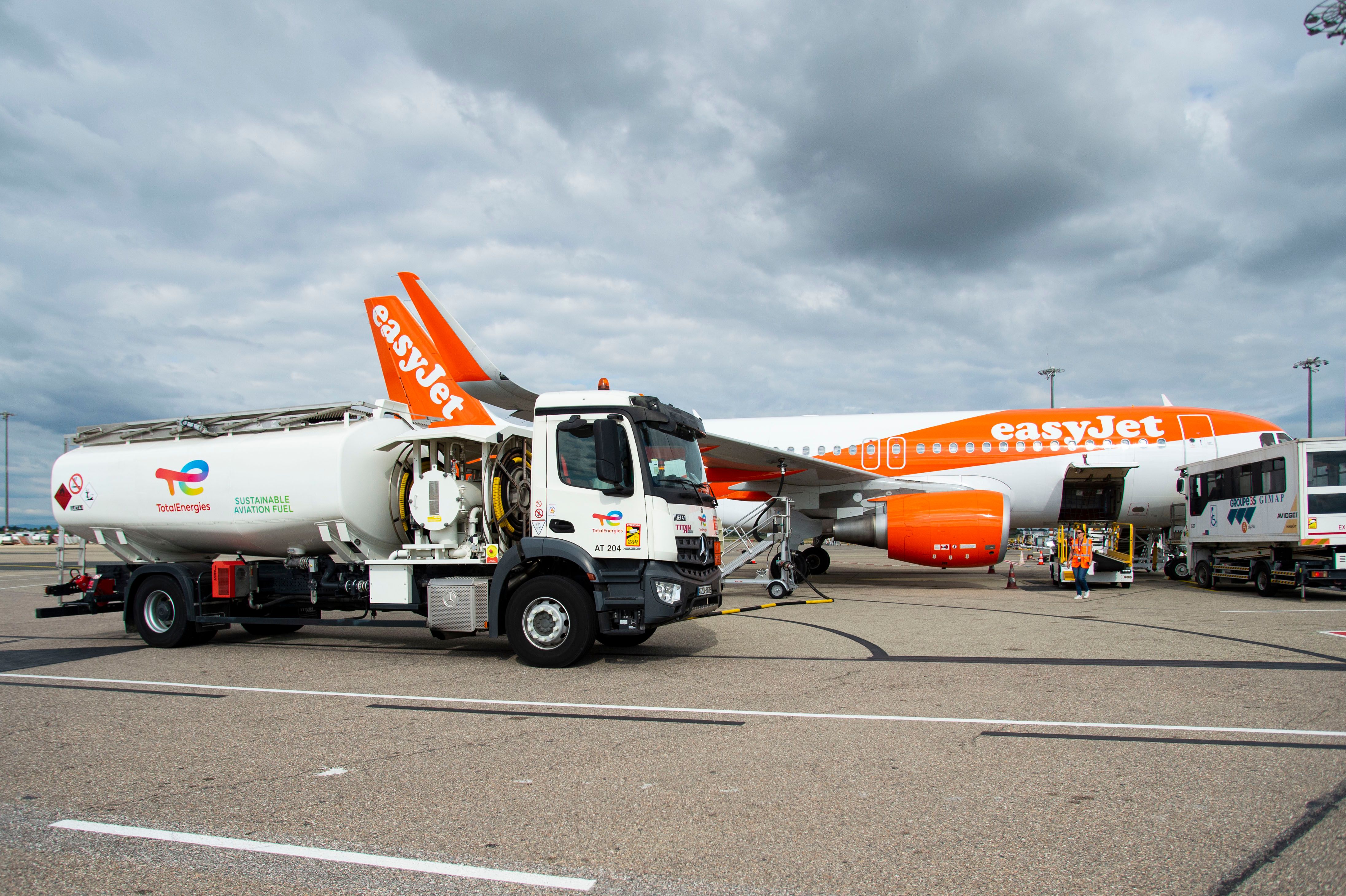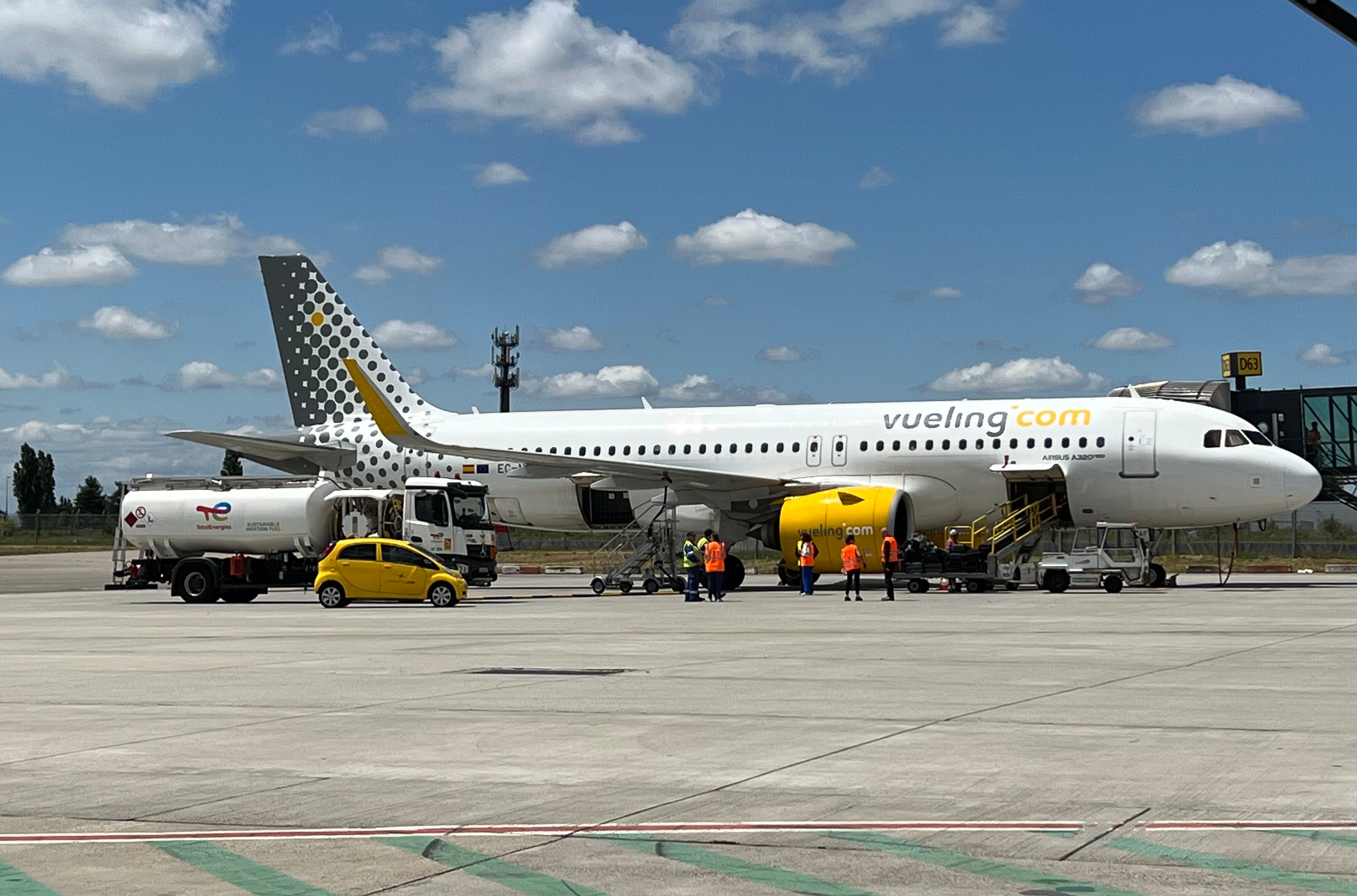For the EU's 'ConnectingEurope by Air - the Green Transformation' event held at Lyon-Saint Exupéry Airport (LYS) on Tuesday, several airlines operated services with optimized flight paths to demonstrate the efficiency improvements to be gained through implementing the Single European Sky. Furthermore, many flights leaving the airport for other destinations that day were fueled by a 30% sustainable aviation fuel (SAF) blend.
Optimizing flight routes
Airlines participating in the flight path optimization initiative included easyJet with flight U24434 from Lisbon, KLM with flight KL1415 from Amsterdam Schiphol, and Vueling for flight VY1220 from Barcelona. This was undertaken in collaboration with the Single European Sky ATM Research (SESAR) 3 Joint Undertaking.
SAF out of LYS
Meanwhile, several carriers, including KLM and Vueling but also Lufthansa for LH1076 from Frankfurt, purchased enough SAF to cover 50% of the fuel requirements for the flight (although this was not fueled on the specific aircraft). The airlines mentioned above but also others, including Air France and Wizz Air, then operated flights out of LYS on a 30% SAF blend, produced and supplied by TotalEnergies.
Demonstrating real operational conditions
The event, part of the European Commission's ConnectingEurope days, was coordinated in collaboration with Airlines for Europe (A4E), Europe’s largest airline association, based in Brussels, of which most of the carriers participating in the initiatives are members. Thomas Reynaert, Managing Director of A4E, commented on the event,
“Today, under real operational conditions, we’ve demonstrated that increased SAF uptake and more efficient air traffic management in Europe can reduce CO2 emissions by more than 30% per flight. Now we need policy-makers to do their part in helping to make SAF more accessible and affordable – but equally, we need national governments to finally implement the Single European Sky, to avoid expensive fuels from being wasted on inefficient routings.”
Vueling, part of the International Airlines Group (IAG), stated that from two flights from Barcelona to Lyon, for which the carrier purchased SAF for the equivalent of 50% of the fuel requirement, it had managed to reduce CO2 emissions by 63%. That sustainable fuel was supplied by Spanish energy company Repsol, the first in Spain to produce a batch of SAF from waste in August 2021.
Meanwhile, all the SAF uplifted by the flights out of Lyon on Tuesday was produced in France. Although, admittedly, the used cooking oil TotalEnergies acquires for the process comes mainly from Asia (the logistics of this is accounted for in the 90% of lifecycle CO2 reductions compared with fossil-based fuel the company and independent auditors attribute to its SAF).
The more, the merrier
However, it is not a case of 'either or', but rather 'and' when it comes to aviation sustainability. The industry will need all the technologies currently in the pipeline, and there will be more than enough SAF demand to go around for many years to come - if policies are put in place to support it. A4E's Reynaert continued,
“As today’s event shows, aviation’s decarbonisation cannot be achieved by airlines acting alone. It requires the collective efforts of many different players, including policy-makers and suppliers, so that all European travellers can benefit – especially the younger generation of flyers, who expect nothing less from us.”
What do you make of Tuesday's flights? Are they one-off media events or a sign of things to come as the industry gets serious about decarbonization? Leave a comment below and share your thoughts.


